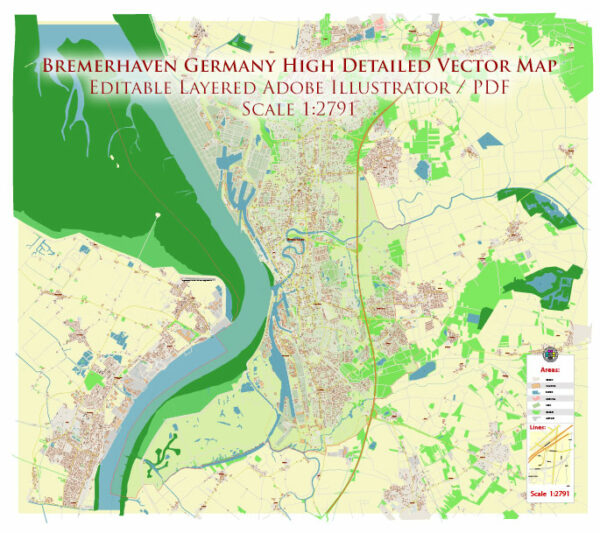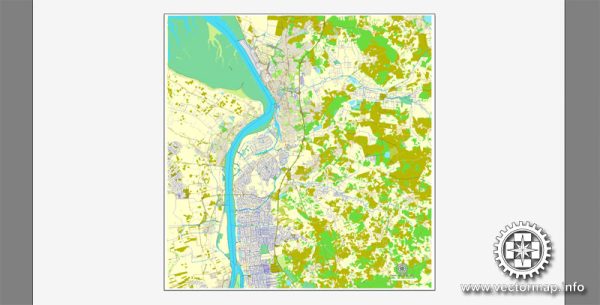Bremerhaven is a port city located in the state of Bremen in northern Germany. Its economy is closely tied to its status as a major maritime and logistics hub due to its strategic location on the North Sea coast. Here’s an economic description of Bremerhaven:
- Maritime Industry: Bremerhaven’s economy is heavily reliant on its thriving maritime sector. The city is home to one of Europe’s largest container terminals, which handles a significant portion of Germany’s container trade. It also hosts shipyards, ship repair facilities, and numerous maritime service providers.
- Fishery and Seafood: Fishing has traditionally been a significant part of Bremerhaven’s economy. The city is known for its fish processing industry, with a focus on herring and other North Sea seafood. The fishery industry has faced challenges in recent years due to overfishing and environmental concerns, but it still plays a role in the local economy.
- Logistics and Trade: Bremerhaven serves as a crucial logistics and transportation hub, connecting Germany to the world. The city’s port facilities and transportation infrastructure make it a vital link in the global supply chain, facilitating the movement of goods through northern Europe.
- Automotive Industry: The automotive industry has a presence in Bremerhaven, with automobile manufacturers and logistics companies using the port to export and import vehicles. This industry contributes to the city’s economic diversity.
- Tourism: Bremerhaven has developed as a tourist destination, thanks to its maritime history and attractions such as the German Maritime Museum, the Zoo at the Sea (Zoo am Meer), and the Climate House (Klimahaus). Tourism generates revenue through accommodation, dining, and related services.
- Research and Education: The city is home to several research institutions and universities, including the Alfred Wegener Institute for Polar and Marine Research and Bremerhaven University of Applied Sciences. These institutions contribute to knowledge-based industries in the city.
- Renewable Energy: Like many places in Germany, Bremerhaven has been investing in renewable energy. The city’s location on the coast provides opportunities for offshore wind energy development. It’s also home to production and maintenance facilities for offshore wind turbines.
- Trade Fairs and Conferences: Bremerhaven hosts trade fairs and conferences related to its maritime and logistics sectors. These events attract professionals from around the world, bringing in additional revenue to the local economy.
- Challenges: Bremerhaven, like many port cities, faces economic challenges related to global economic fluctuations and competition from other ports. The city must also address environmental concerns and adapt to changing industry trends, such as the transition to cleaner energy sources.
In summary, Bremerhaven’s economy is heavily focused on maritime industries, logistics, and trade, with a growing emphasis on renewable energy and a burgeoning tourism sector. While the city faces economic challenges, its strategic location and diversified industries provide a foundation for continued economic growth and development.



 Author: Kirill Shrayber, Ph.D. FRGS
Author: Kirill Shrayber, Ph.D. FRGS